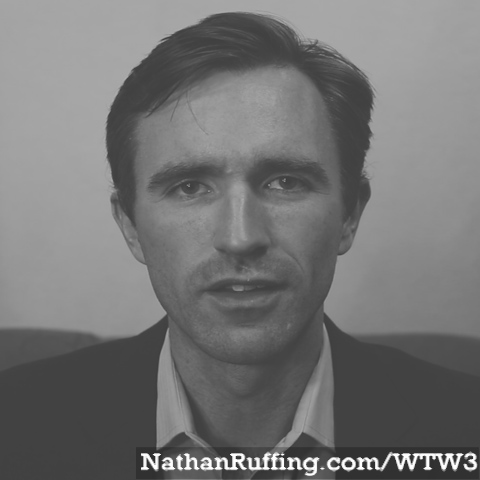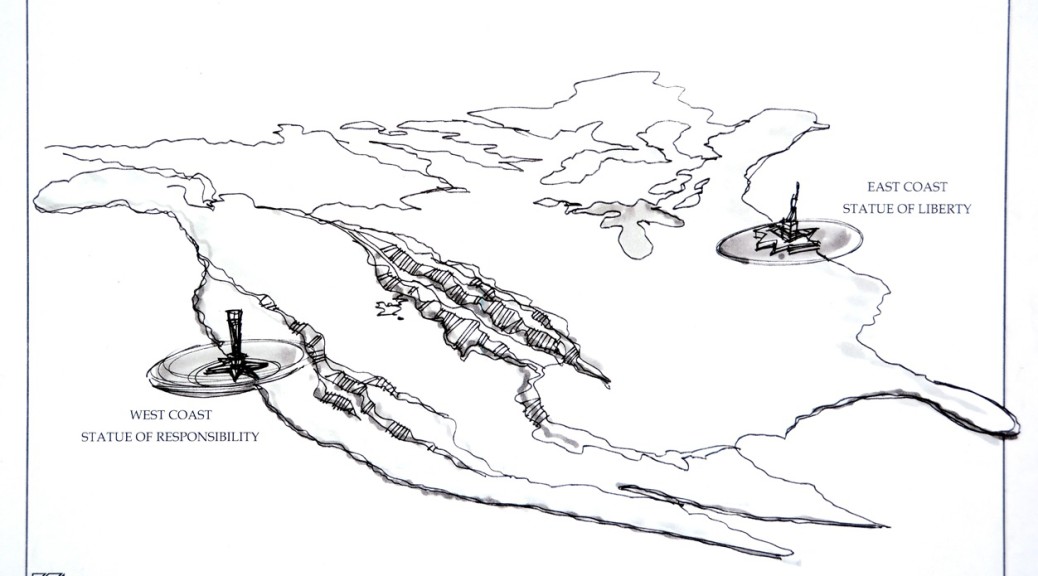In this post, I put the numbers that we as individuals can know with reasonable certainty in perspective. I cannot say based on these numbers whether man-made climate change is or is not happening. What I can say is that the numbers show human carbon transfer is large enough to possibly have an effect. Because I believe the burden of proof should be on those saying there is no change, then I assume man is affecting the global climate.
This phenomenon should be called “Global Carbon Transfer.”
Below are some numbers to put our effect as humans in perspective. I have heard both sides of this polarizing issue for a long time, and have been meaning to put some numbers to my own intuition. I chose numbers that can be intuitively understood and, though they are estimates, can be measured fairly directly. As far as I know, the following is not seriously in dispute.
Reference for Perspective
5.15 x 1018 Kg = total mass of the atmosphere.
3.0 x 1015 Kg = total mass of CO2 in the atmosphere.
The following macro numbers are so huge as to be meaningless without some reference for scale. I use this quantity, 3.0 x 1015 Kg, total mass of CO2 in the atmosphere, simply to compare to other huge numbers to get some perspective. They are not directly related to each other within the equilibrium.
CO2 Concentration in the Atmosphere
0.0582% = CO2 in the atmosphere by weight. It makes up a very small portion of the atmosphere.
https://micpohling.wordpress.com/2007/03/30/math-how-much-co2-by-weight-in-the-atmosphere/
Mass of CO2 Released Annually by Humans
35.9 x 1012 Kg = annual CO2 released by human activity, 2014.
1.2% = mass of annual CO2 released by humans as a fraction of the total mass of CO2 in the atmosphere = [35.9 x 1012 Kg] / [3.0 x 1015 Kg]
Mass of CO2 Released Since the Start of the Industrial Revolution
2.0 x 1015 Kg of CO2 = total CO2 released from 1870-2014.
67% = [2.0 x 1015 Kg] / [3.0 x 1015 Kg] = mass of CO2 released from 1870-2014 as a fraction of the total mass of CO2 in the atmosphere.
https://www.co2.earth/global-co2-emissions
What it Means… and Doesn’t Mean
The amount of CO2 released by humans can be measured fairly accurately. Annually, it equals ~1.2% of the total weight of CO2 in the atmosphere. This is not to be confused with a ratio comparing to the amount of CO2 released naturally annually. We are one source of many in an equilibrium. Though that would be a more meaningful ratio, I did not use it because the amount released and consumed naturally cannot be measured as directly, and is beyond the scope of this post. I stick to numbers that I can know and verify with reasonable certainty.
The amount released by humans since the beginning of the industrial revolution can also be estimated. This equals ~67% of the total CO2 in the atmosphere. This is the best I can do as an individual debating this topic, but the total we have poured into the atmosphere over that amount of time is like measuring the amount of water you put into a bucket with a big leak. How much is still in the bucket? It depends on the leak!
My conclusion: the amount that humans release is not massively alarming in proportion. I cannot prove or disprove man-made climate change. However, it certainly is a relevant amount, we should pay attention to it, and I personally believe man-made global climate change is happening.
The Volcano Effect
~200 x 109 Kg = mass of CO2 that volcanoes release annually on average. This number is widely disputed, and is known to be not well measured.
http://hvo.wr.usgs.gov/volcanowatch/archive/2007/07_02_15.html
[200 x 109 Kg] / [35.9 x 1012 Kg of CO2] = .56%,
The CO2 released by volcanoes continuously is less than 1% of the amount released by humans continuously, based on this estimate. How much does a big eruption produce? …
The Tambora Eruption of 1815
Regardless of what you believe, you have to read about this! The magnitude is unbelievable. Fun to read about.
https://www.wired.com/2015/04/tambora-1815-just-big-eruption/
The Tambora eruption was possibly the largest in the last 10,000 years: https://en.wikipedia.org/wiki/1815_eruption_of_Mount_Tambora
Tambora released up to 120 x 109 Kg of SO2 and likely caused the “Year Without a Summer” of 1816: https://en.wikipedia.org/wiki/Year_Without_a_Summer
What is the long-term effect of one huge volcano? How does that compare to our human effect? I do not know.
My Opinion
I personally believe that yes, the earth is warming because we continuously release significant amounts of CO2 into the atmosphere. It makes common sense. Almost everything we do releases CO2. More CO2 changes the reflective properties of the atmosphere. The greenhouse effect as a concept is a proven fact. If it is possible to change the temperature by adding CO2, we are doing everything we can to make it happen.
What do I think we should do? What do I think government policy should be? Regardless of climate change, I believe that reducing dependency on carbon-based fuels is a worthy challenge. Regardless of climate change! Even though I believe global warming is happening, I can’t prove it. Nobody can. Even if it can be proven, can we stop it or reverse it? Well, who cares? Alternatives are cleaner, more renewable, and we could use a good challenge anyway! I think the government should set policy–yes including raising taxes on carbon-based fuels–such that the price is at a level where people have to make significant life choices to economize, but can still live comfortably. For example, car pooling and public transportation are a lot more attractive at $5 / gallon than at $2 / gallon. This simultaneously buys time to find alternate solutions, spurs market ingenuity, provides a meaningful challenge that encourages people to work together, and even supports national security by reducing dependency.










